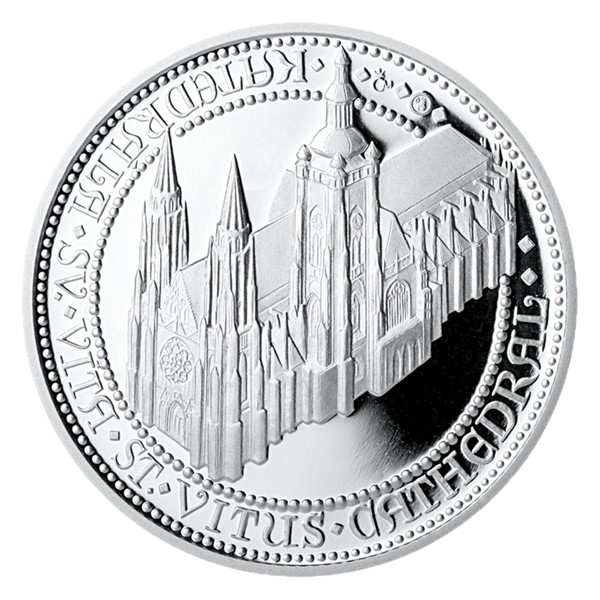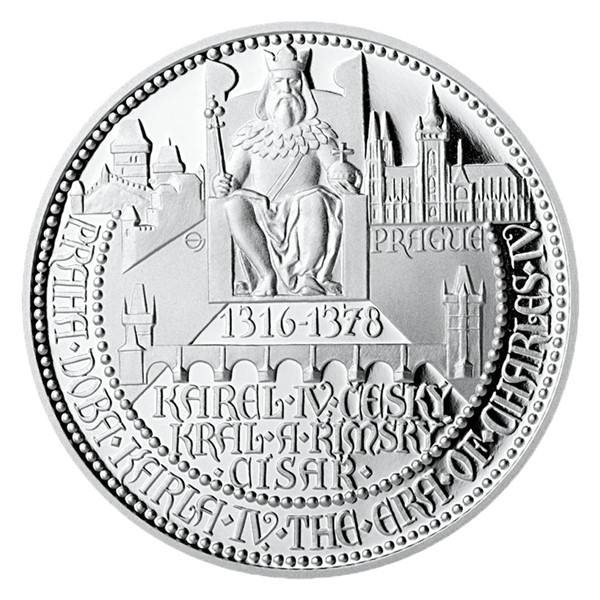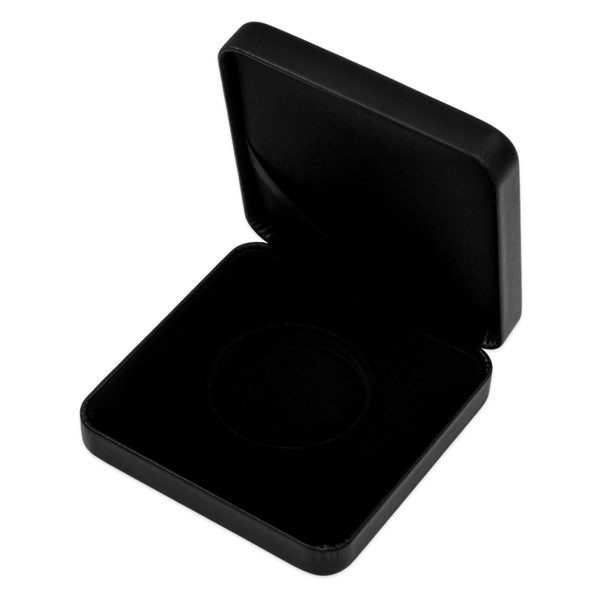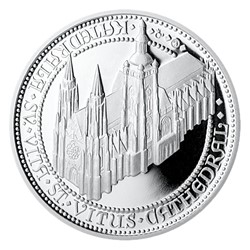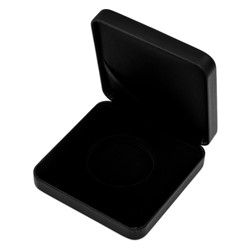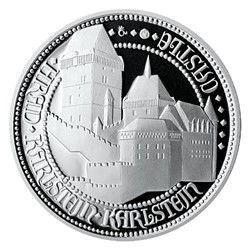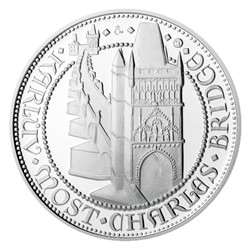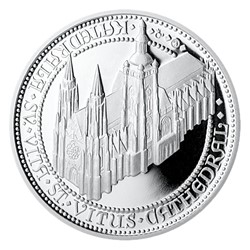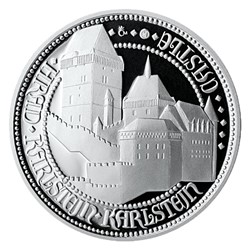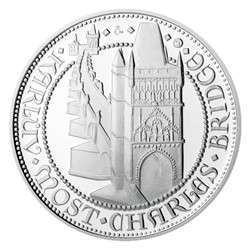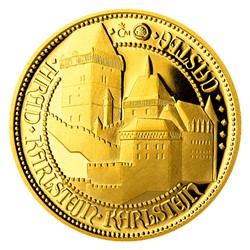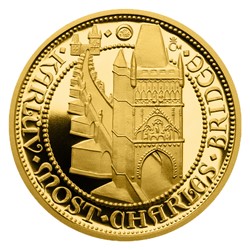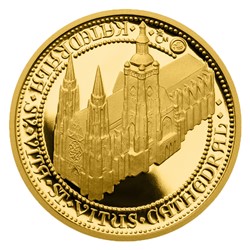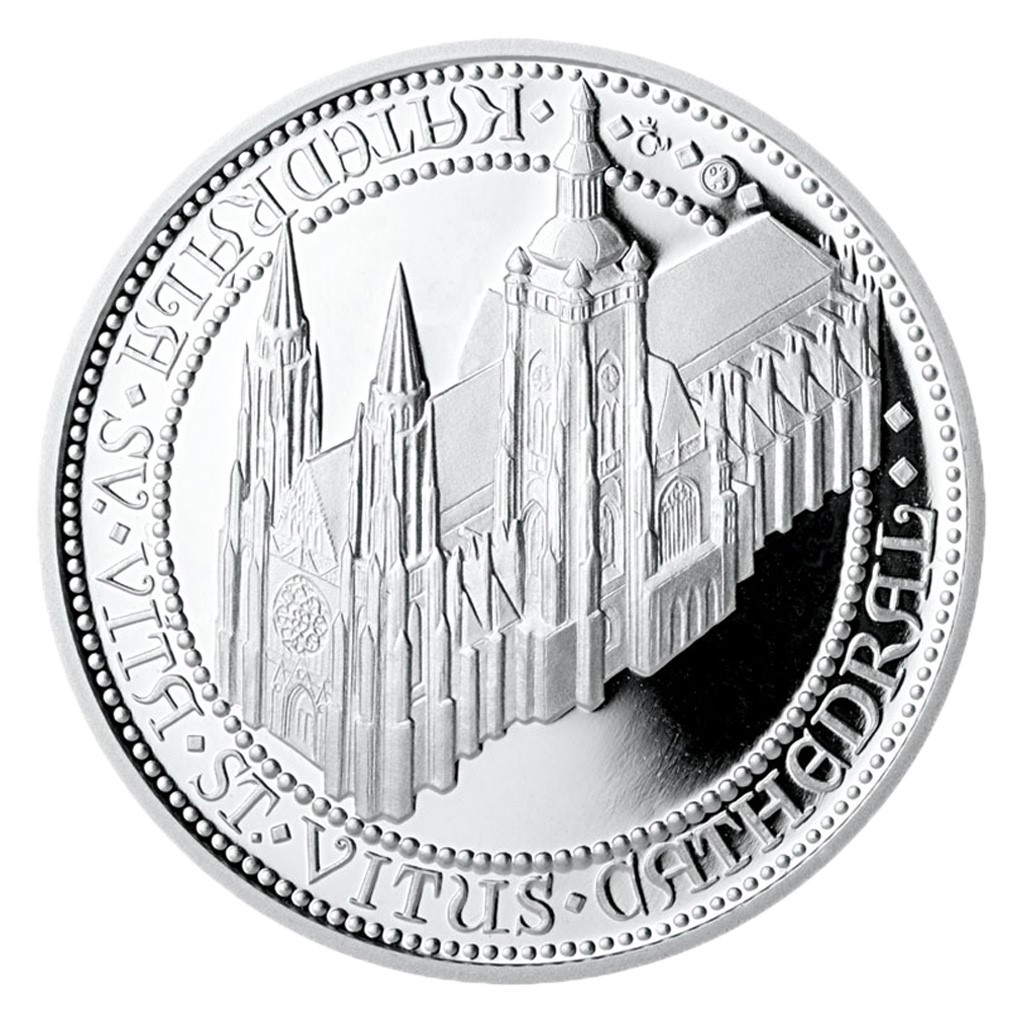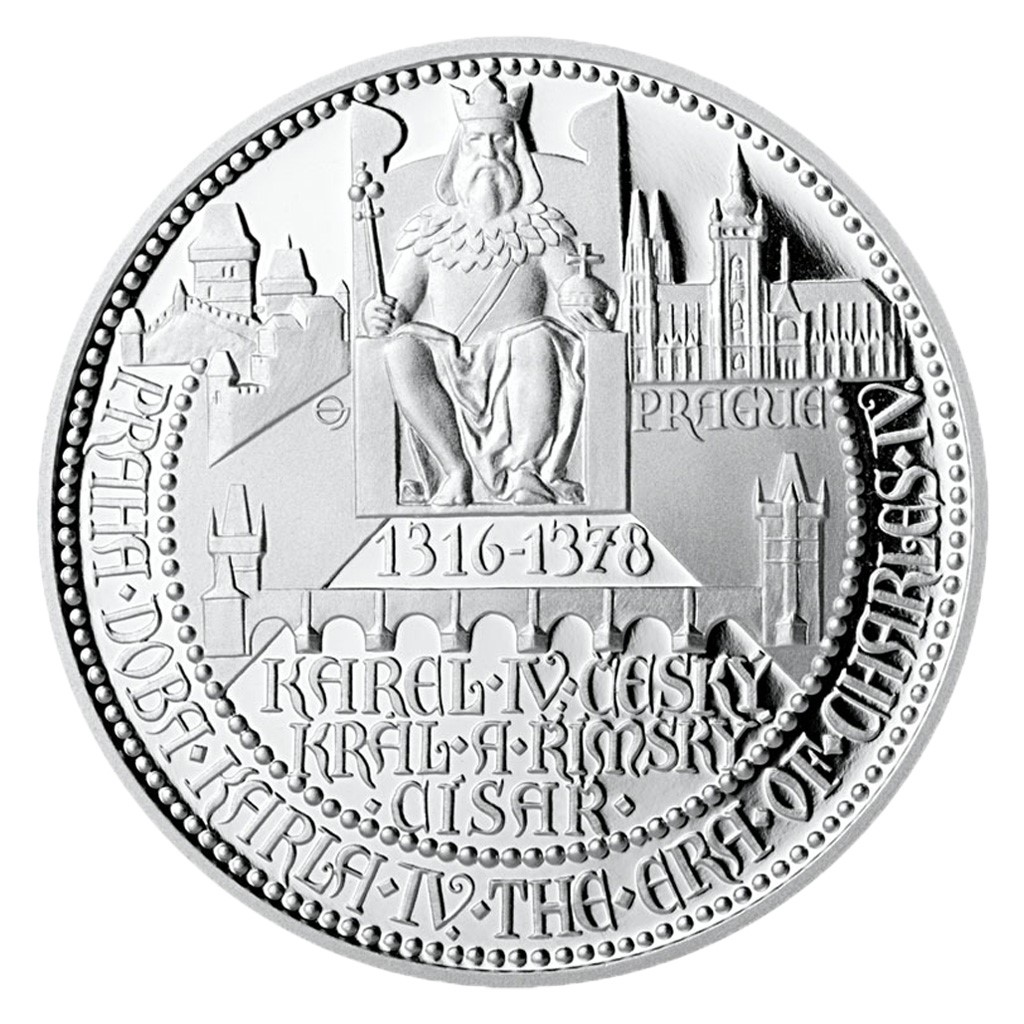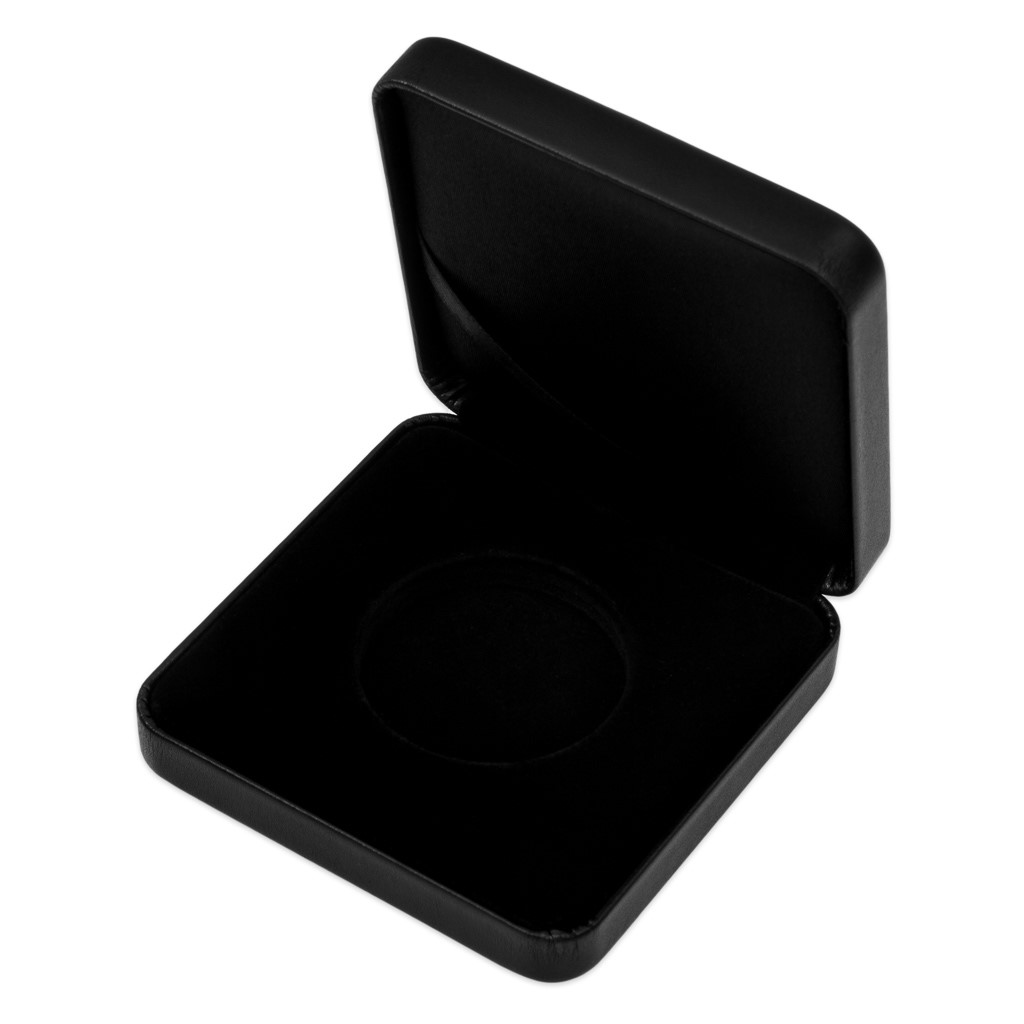Silver medal Charles IV Period - St. Vitus' Cathedral proof
Personal pickup at the store
Product description
Czech Mint’s special series titled The Period of Charles IV commemorate the rich legacy of this significant ruler who is often called The Father of the Homeland – and not only for his hearty attitude to Bohemia. Silver medals and gold ducats included in the series celebrate with their appealing design three notable monuments: Karlštejn Castle, Charles Bridge and St. Vitus’ Cathedral.
Charles IV was the first king of Bohemia also to become Holy Roman Emperor and he used it for the benefit of the Czech crown lands. He made Prague the capital of his empire and gradually rebuilt it. This brought immense prosperity to the country followed by cultural development and arrival of leading specialists and intellectuals to the town. The ruler secured for the Czech lands top position among central European countries. As a highly educated diplomat he brought great capital to Bohemia and helped develop rich trade relations. He was also very pious and relied on church; during his reign nobility lost many of their previous privileges. His faith gave rise to many sacral buildings which he had built.
Charles IV was an unusually learned and perceptive man. He knew very well Gothic architectural style which he saw in France where he was brought up. He therefore decided to build a cathedral whose grandeur would surpass its French model. To fulfil this intention he, of course, needed a builder who could accomplish this aim, and therefor he summoned Mathias of Arras to Prague from Avignon. The foundation stone of St. Vitus’ Cathedral was laid jointly by Charles IV, his father John of Luxembourg and archbishop Arnošt of Pardubice on 21 November 1344. Simultaneously, the Prague bishopric was elevated to archbishopric. Matthias of Arras set to work immediately afterwards, but he died in 1352. After his death, his plans for the construction of the cathedral were followed, but in 1356 a new builder, German Peter Parler took on, and later on his sons. Compared with Matthias’s style, Parler’s style was distinctly freer and bore the marks of Late Gothic.
King Wladislaw II Jagielo continued in the vision of Charles IV with master builders Hanuš Spiess and Benedikt Ried. In 1541 the construction was hit by fire. The Lesser Quarter and the Castle flared up, all wooden parts of the cathedral burnt down, the bell was damaged and the three naves destroyed. The reconstruction was carried out under the auspices of Ferdinand I, who invited Paola della Stella and later on Bonifác Wohlmut to continue the work. It was completed at the end of 16th century. In 1621 the church was re-consecrated in relation to the development after the Battle on the White Mountain. Numerous minor alterations of the monument have been carried out since. Final part of the construction was realized by Svatovítská jednota (St. Vitus's Unity) at the turn of the 19th century and in 1929, on the occasion of the millennium of the murder of St. Wenceslas, the cathedral was consecrated. Between 1920 and 1997 the name St. Vitus Cathedral was used, while in 1997 the then Archbishop of Prague Miloslav Vlk reinstated the church’s original name Cathedral of St. Vitus, Wenceslas and Adalbert.
The investment medal St. Vitus’ Cathedral was designed by proficient medallist M.A. Josef Oplištil. On the obverse he pictured the cathedral from an untraditional bird’s eye view. The reverse is dominated by the effigy of the ruler surrounded by notable structures that began to be built during his reign on his initiative. The text on the reverse includes the name of the series and also years of the king’s birth and death. Czech Mint issues the silver one-ounce medal in a limited edition of 5,000 pieces.
Our time favours investments in silver, as its prices are currently stagnating. However the prognosis speaks clearly in its favour and designate fine silver as a smart way of depositing one’s financial reserves. In connection with high artistic value of the silver commemorative medal you will not only appreciate your money but enrich your collection with a piece of famous Czech history.
 čeština
čeština
 slovenčina
slovenčina
 english
english
